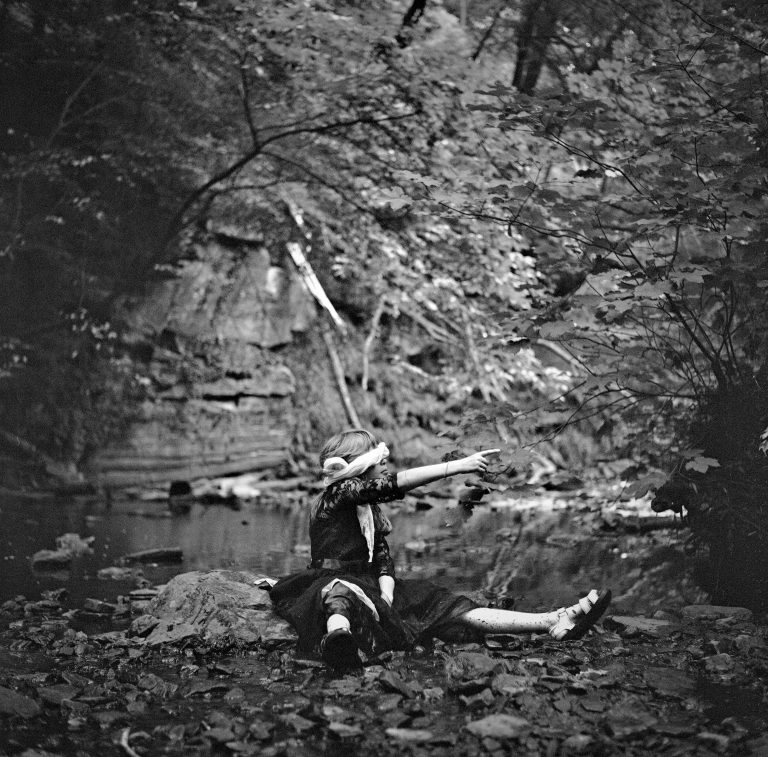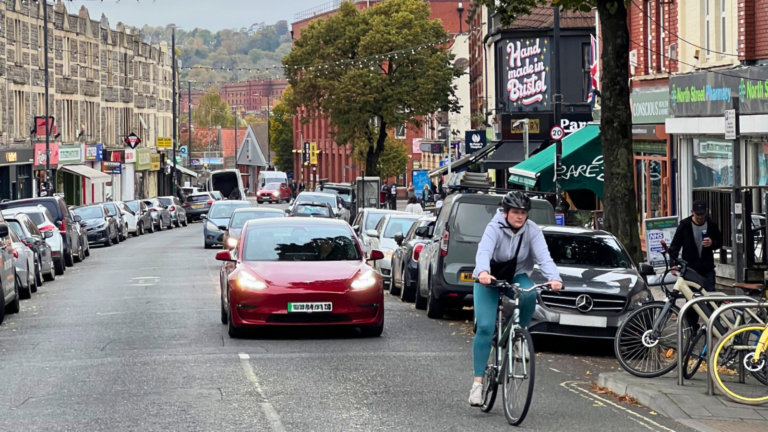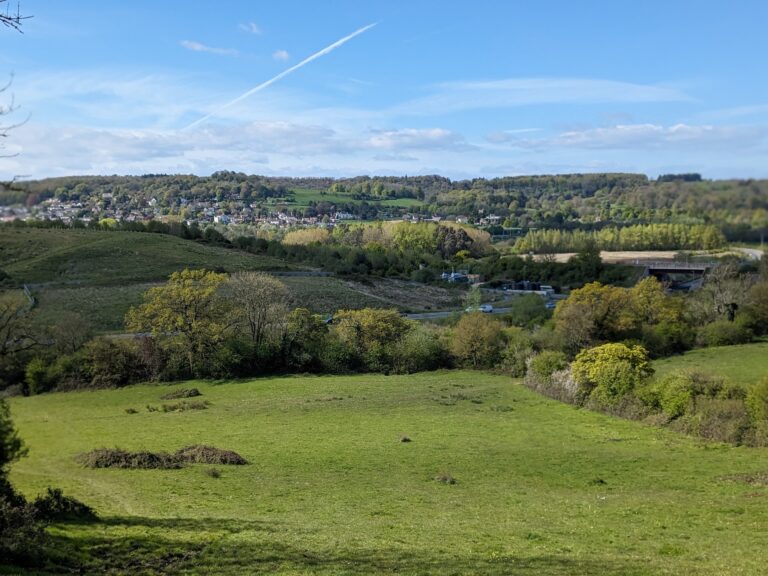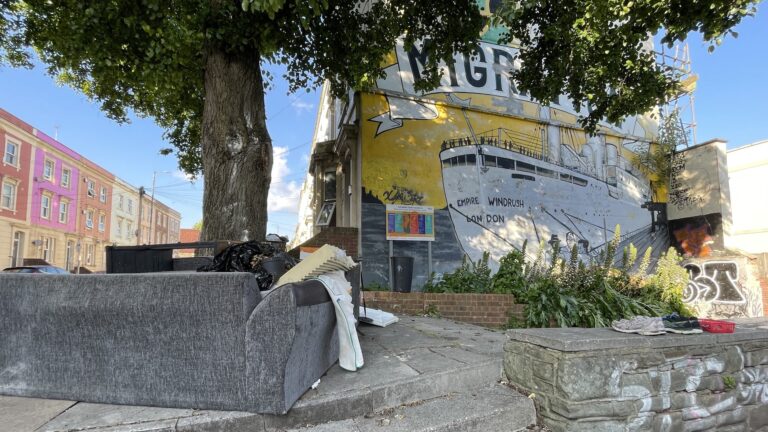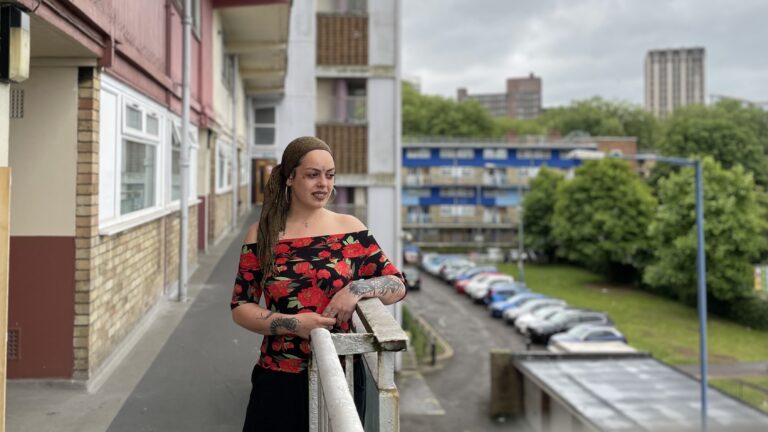Photos: Josie Tang
In June, climate activist Mikaela Loach came to Strange Brew in Bristol to talk about climate activism and social justice. The discussion in front of a sold out crowd, hosted by fellow activist Dominique Palmer, touched on her experience of the climate movement, the impact of the climate crisis that is happening right now and how we can avoid a future of eco-fascism.
In 2020, Forbes, Global Citizen and BBC Woman’s Hour named Mikaela as one of the most influential women in the UK climate movement. Her work focuses on the intersections of the climate crisis with oppressive systems and making the climate movement a more accessible space.
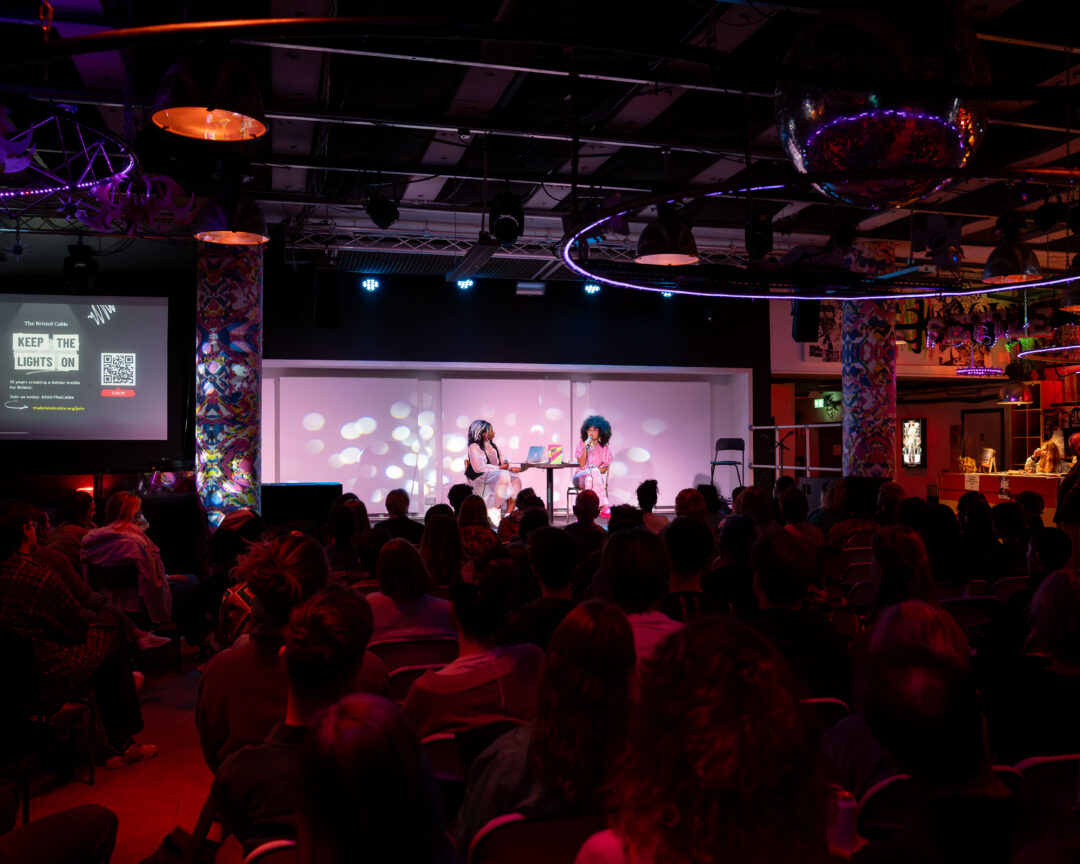
Mikaela spoke about her book It’s Not That Radical, which she wrote “as a way of processing climate grief” after a conversation with her Grandma in Jamaica, about childhood memories of a beach, which has now disappeared because of rising sea levels and hurricanes.
She reminds us that impact of the climate crisis is in the present not just the future, and that climate action can come in different forms in decades to come, ranging from a just transition to some sort of eco-fascism. Mikaela also talked about causing a stir at Shell’s AGM, which led to her being rushed by security after she asked a question on behalf of people living in the Niger Delta.
Keep the Lights On
Investigative journalism strengthens democracy – it’s a necessity, not a luxury.
The Cable is Bristol’s independent, investigative newsroom. Owned and steered by more than 2,600 members, we produce award-winning journalism that digs deep into what’s happening in Bristol.
We are on a mission to become sustainable – will you help us get there?

Comments
Related content
‘Liveable neighbourhoods’ have caused uproar in east Bristol. How will they fare south of the river?
The council has started consulting on making large areas of south Bristol friendlier to pedestrians and cyclists. What do residents want – and have lessons been learned about how to communicate with them?
St Paul’s residents call for action on ‘upsetting and depressing’ fly‑tipping in their neighbourhood
After years of what they say is disproportionate dumping in their area, and too little action to find lasting solutions, a group of BS2 residents are taking their concerns to the doorstep of City Hall.

